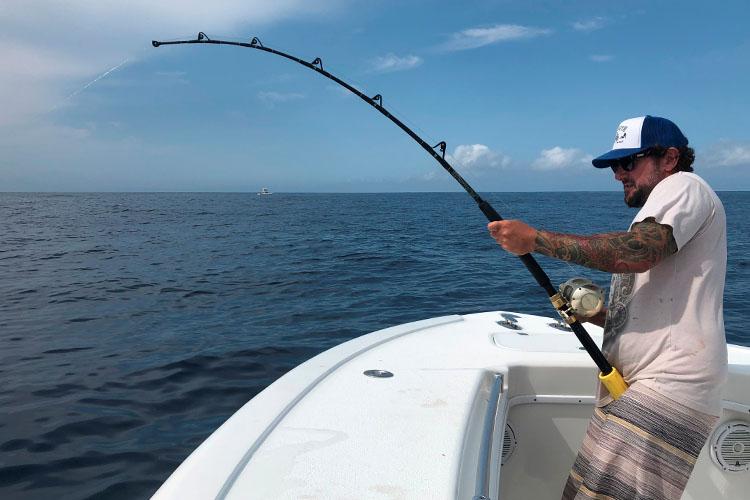A new survey of saltwater recreational anglers looked at their sources of information when it comes to fishery management and data collection. It found that their most used and trusted sources were friends, family, bait and tackle shops, and state and federal agency information such as websites and regulation guides.
NOAA Fisheries conducted the mail survey of 10,000 randomly sampled licensed saltwater recreational anglers on the Atlantic and Gulf coasts from Maine to Mississippi. Results will help the agency better understand how information flows through recreational fishing communities and inform our strategies for engaging with anglers.
Other key findings include:
–The important role of friends, bait shop employees, and family members suggests that fishery information likely flows through social channels more frequently than it does through other forms of communication. This is critical to understanding how information is shared within the recreational fishing community.
— Information sources that likely involve direct interactions (e.g., family, bait and tackle shops, and for-hire captains) were more trusted than online or broadcast sources (e.g., blogs and message boards).
— Social networks are important for information sharing and, potentially, opinions about fishery management.
–While avid anglers tend to consult friends and bait and tackle stores most frequently for fishing information, they also consult a wider variety of sources, and consult them more frequently than less avid anglers.
— More avid anglers have larger angler networks and could serve as information pathways.
— Anglers involved with fisheries management and who describe themselves as familiar with fisheries regulations also have larger angler networks. They could potentially serve as information pathways themselves.
— Anglers who say they understand the fisheries management process, and believe fisheries managers share their values and respond to their concerns, are more likely to trust management.
— Opinions on the effectiveness of current fisheries management are tied to trust in management, shared values, and perceptions of management responsiveness.
This mail survey was conducted from June–September 2020. It was the first phase of a social network analysis designed to help identify relationships, networks, channels, and information flow within the recreational fishing community. The study (PDF, 111 pages) examined how recreational anglers gather, share, and evaluate information on topics related to fisheries data collection.
The survey collected data on:
–Where saltwater recreational anglers go to gather information on saltwater recreational fishing issues including fishing regulations and data collection
–Angler trust levels associated with different sources of information on saltwater fishing regulations and data collection issues
–Angler understanding of and confidence in saltwater recreational fisheries management, data collection, and data analysis
–Angler opinions and beliefs on the current state of saltwater recreational fisheries management and data collection
These findings helped develop and plan for the second phase of the study: an in-person survey of 180 anglers among three coastal communities. We are currently assessing the timeline for conducting this phase in light of COVID-19. The mail survey helped identify sources and pathways used in information gathering and focused on discovering broad trends. The in-person interviews will collect more detailed information about specific angler social networks and interactions. In particular, it will provide an opportunity to more fully detail how anglers:
–Communicate about fishery data collection and management issues
–Identify trusted information sources
–Understand the drivers of their attitudes toward different sources of information
The social network analysis was informed by the 2017 National Academies of Sciences review of the Marine Recreational Information Program and MRIP’s five-year strategic plan (2017-2022) to expand two-way dialogue with the recreational fishing community. The project was developed by NOAA Fisheries staff and ECS contractors, in consultation with researchers from the University of Florida and the Illinois-Indiana Sea Grant College Program.

